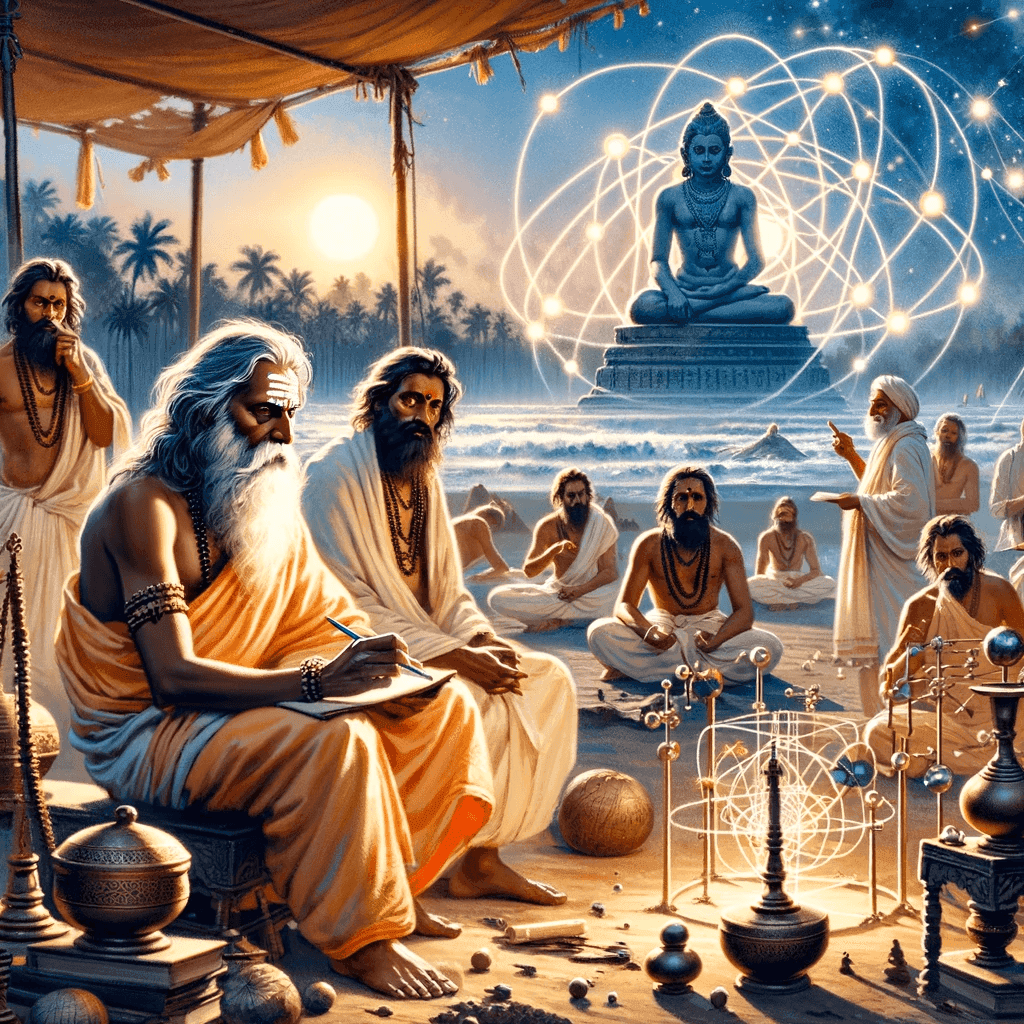Atomic Theory: The Visionary Insights of Maharishi Kanad
Maharishi Kanad, an ancient Indian sage and philosopher, is credited with conceptualizing ideas about atoms and atomic reactions that strikingly resemble aspects of modern atomic theory. Living around the 6th century BCE, his pioneering thoughts laid the groundwork for later atomic concepts.
Information and Other Details

Information on the Discovery
Kanad proposed that all matter could be divided into smaller and smaller particles until one reached the smallest indivisible particles, which he called "Anu" (atom). His postulations were among the earliest references to the concept of an atom in the context of understanding the composition of matter.
Story of Maharishi Kanad
Maharishi Kanad’s journey into atomic theory began with his observation of dust particles in a sunbeam, leading him to speculate about the existence of small, indivisible particles. He then dedicated his life to philosophical inquiry and the study of matter, eventually composing the "Vaisheshika Sutra," where he articulated his atomic theory.
History of the Discovery
The "Vaisheshika Sutra," Kanad’s seminal text, written around the 6th century BCE, is where he systematically laid out his atomic theory. He proposed that atoms were eternal, indestructible, and interacted in various ways to form more complex matter.
Scriptural References and Its Mentions
Kanad’s atomic theory is primarily documented in the "Vaisheshika Sutra." This ancient text delves into various topics, including philosophy, physics, and metaphysics, and serves as a critical source for understanding his atomic concepts.
Global Influence/Acceptance
While the global influence of Kanad's atomic theory was limited in ancient times, his ideas contributed significantly to the Indian philosophical and scientific understanding of matter. His work is now recognized for its surprising foresight into concepts that have parallels in modern atomic theory.
...




